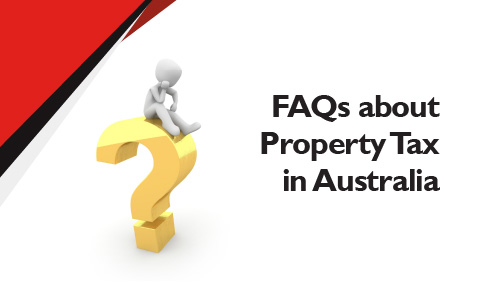Do You Have to Pay Property Tax in Australia?
Introduction

Do you have to pay property tax in Australia?
When it comes to property ownership, taxes are an inevitable part of the equation. In Australia, property taxes play a crucial role in funding various public services and local government operations. If you’re a property owner or considering purchasing property in the Land Down Under, it’s essential to understand the intricacies of property taxes and how they might impact your financial obligations. In this article, we’ll delve into the world of property taxes in Australia, exploring who pays them, how they’re calculated, and the purposes they serve.
Understanding Property Taxes
What Are Property Taxes?
Property taxes are levies imposed by local governments or municipalities on property owners. These taxes are typically based on the value of the property and contribute to funding public services such as schools, roads, waste management, and emergency services. In Australia, property taxes are a primary source of revenue for local councils and state governments.
Property Taxes vs. Land Taxes
It’s important to distinguish between property taxes and land taxes. While both are related to property ownership, they are not the same thing. Property taxes encompass a broader spectrum of taxes related to property ownership, including land taxes. Land taxes, on the other hand, are specifically levied on the value of the land itself, rather than the entire property.
Who Pays Property Taxes in Australia?
Property Owners
In Australia, property taxes are primarily the responsibility of property owners. Whether you own a residential property, commercial property, vacant land, or investment property, you will likely have property tax obligations. It’s worth noting that property taxes can vary significantly based on factors such as property type, location, and property value.
Homeowners
Homeowners in Australia are subject to property taxes, typically in the form of council rates. Council rates are local government charges that contribute to the funding of services and infrastructure within a specific area. These rates can vary from one council to another and are usually calculated based on the property’s capital improved value.
Investors
If you’re an investor in the Australian property market, you’ll also have property tax responsibilities. Investors are required to pay income tax on any rental income they earn from their properties. Additionally, if the property’s value appreciates and is subsequently sold, capital gains tax might apply to the profits gained from the sale.
How Are Property Taxes Calculated?
Valuation of Property
The calculation of property taxes begins with the valuation of the property. Local authorities assess the value of the property, taking into account factors such as property size, location, improvements, and market trends. The resulting value serves as the basis for determining the property tax amount.
Rate Calculation
Once the property’s value is established, the local council sets a rate, known as the “rate in the dollar.” This rate, when applied to the property’s value, determines the annual property tax amount. For instance, if the rate in the dollar is 0.005 and the property’s value is $500,000, the property tax would amount to $2,500. For CBD tax advice see here.

Land Tax Calculation
For land taxes, the calculation focuses solely on the value of the land itself. Land tax thresholds and rates can vary between states and territories in Australia. Generally, if the total value of the land you own exceeds the specified threshold, you’ll be required to pay land tax on the portion above the threshold.
Purposes of Property Taxes
Funding Local Services
One of the primary purposes of property taxes in Australia is to fund local government services and infrastructure. These taxes contribute to the maintenance of essential services such as garbage collection, road maintenance, public schools, and recreational facilities.
Equalizing Revenue Distribution
Property taxes also play a role in redistributing revenue among different regions. Areas with higher property values generate more tax revenue, which can then be used to support areas with lower property values that may struggle to generate sufficient funds for their services.
Encouraging Proper Land Use
Property taxes can influence landowners’ behavior and choices. Higher tax rates on vacant land, for example, might encourage landowners to develop or utilize the land more effectively, thus promoting better land use within communities.
Exemptions and Concessions
Principal Place of Residence
In many cases, the property that serves as your primary residence can be eligible for exemptions or concessions on property taxes. This means that if you’re living in the property you own, you might receive certain reductions in your property tax obligations.
First Home Buyers
First home buyers might also benefit from concessions or exemptions on property taxes. These incentives are often designed to alleviate the financial burden on individuals entering the property market for the first time.
Conclusion
Property taxes are an integral part of property ownership in Australia. Whether you’re a homeowner or an investor, understanding your property tax obligations is crucial for effective financial planning. These taxes contribute to the betterment of local communities, funding essential services and infrastructure that enhance our daily lives. As property tax regulations can vary between states and territories, it’s advisable to consult with local authorities or tax professionals to ensure you’re meeting your obligations accurately and efficiently.

